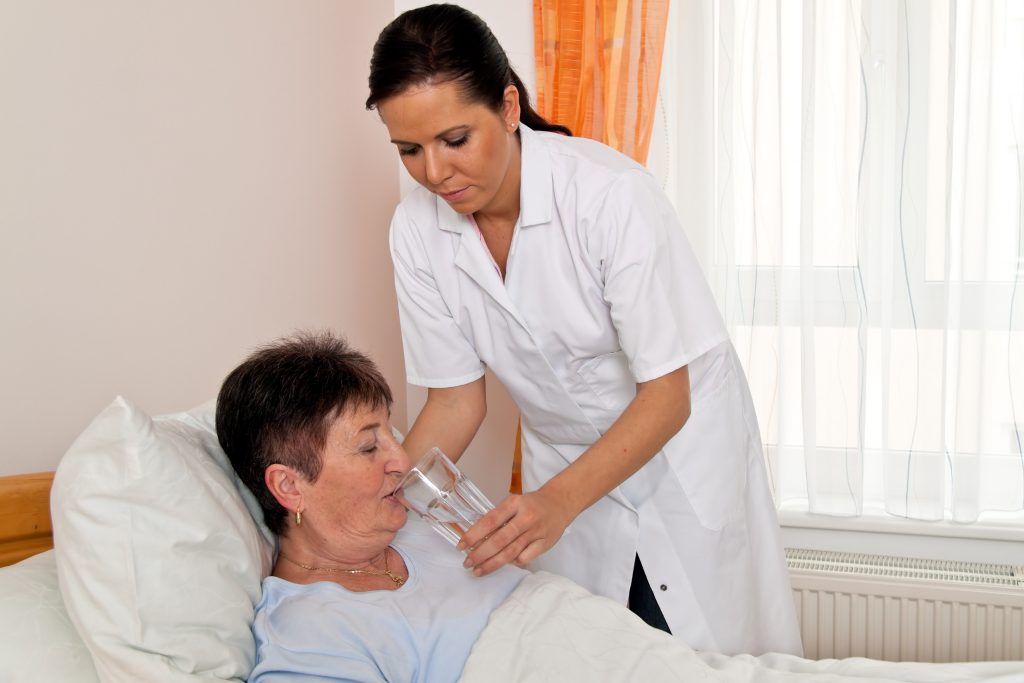
Understanding Post-Operative Care: A Vital Healing Phase
Post-operative care, often referred to as post-surgery care, encompasses the critical phase of recovery that follows any surgical procedure. It entails the attentive management of a surgical wound and the healing process that ensues. This phase typically involves pain management and various forms of wound care, tailored to the specific requirements of the patient’s surgical intervention. The nature and particulars of post-operative care are contingent upon the type of surgery performed, commencing immediately after the surgical procedure within the hospital setting and often extending into the patient’s home environment. Many individuals necessitate assistance at home during this period, spanning from a few hours to several days or even weeks, leading to the involvement of a home health care aide to offer invaluable support.
Potential Complications: Vigilance and Communication
Post-operative care also necessitates vigilant monitoring for potential complications that may arise during this recovery period, some of which may not manifest until after the surgery. Common complications include infection, blood clots, or issues related to the surgical site. Patients are advised to engage in open discussions with their healthcare provider regarding these potential complications and should maintain a list of reasons warranting immediate communication with their physician. A home health care aide, trained in post-operative care, plays an instrumental role in assisting patients in comprehending the signs of complications, recognizing changes in the surgical site, and determining when it becomes imperative to seek medical attention.
Essential Questions Before Hospital Discharge
Before being discharged from the hospital, it is imperative to seek clarity on a range of pertinent questions pertaining to post-operative care:
- Medications: What medications will be required at home for the ongoing recovery process?
- Supplies: Will additional supplies or medical equipment be essential for the at-home care regimen?
- Side Effects: What potential side effects should be anticipated as a result of the surgery or prescribed medications?
- Activity Restrictions: Are there specific activities that must be avoided during the recovery period?
- Resuming Normal Routine: When is it safe to gradually resume one’s normal daily routine?
- Medical Communication: What documentation or paperwork is necessary to facilitate communication between healthcare professionals and the in-home health care provider?
Post-operative care at home is a pivotal facet of the healing journey, playing a pivotal role in the return to a regular lifestyle. Adhering to the prescribed medication regimen and attending all scheduled postoperative appointments are integral to ensuring the success of the surgical intervention and a smooth recovery process. Facilitate a seamless transition between the hospital and home environment by enlisting the services of a professional in-home health care provider, such as those available through the Vancouver Home Health Care Agency.
In-home health care providers, like those affiliated with the Vancouver Home Health Care Agency, play a crucial role in bridging the gap between hospital-based care and the patient’s recovery at home. These professionals are not only well-versed in the intricacies of post-operative care but also possess the expertise to offer personalized support tailored to the patient’s unique needs.
Their responsibilities encompass a broad spectrum of tasks and responsibilities, including:
- Medication Management: Ensuring patients adhere to their prescribed medication regimens, monitoring for any adverse reactions, and promptly communicating any concerns to the healthcare team.
- Wound Care: Providing meticulous care for surgical wounds, dressing changes, and maintaining optimal hygiene to prevent infections.
- Symptom Monitoring: Regularly assessing the patient’s vital signs, monitoring for any changes or anomalies, and promptly reporting any issues to the attending physician.
- Pain Management: Employing effective pain management strategies to alleviate discomfort and improve the patient’s overall comfort during the recovery phase.
- Nutritional Support: Ensuring the patient maintains a balanced diet that promotes healing and recovery, in consultation with the healthcare team.
- Emotional Support: Offering emotional and psychological support to alleviate the anxieties and concerns that may arise during the post-operative period.
- Communication Liaison: Facilitating effective communication between the patient, family members, and the healthcare team to ensure that all parties remain well-informed and engaged in the recovery process.
In conclusion, post-operative care is a critical phase in a patient’s journey towards healing and restored well-being. The collaboration between healthcare professionals, patients, and in-home health care providers is pivotal in ensuring a smooth and successful transition from the hospital to the home environment. By adhering to prescribed medications, adhering to recommended post-operative protocols, and leveraging the expertise of professionals in post-operative care, patients can look forward to a more comfortable and effective recovery process, ultimately leading to their improved health and quality of life.
“At Vancouver Home Health Care Agency, our commitment is rooted in caring and compassion, ensuring that your well-being remains at the heart of what we do.”
- Addressing the Unique Challenges of Aging within the LGBT Community
- Distinguishing Between Occupational Therapy and Physical Therapy: Unveiling the Nuances
- Key Considerations When Selecting Home Healthcare Services
- The Future of Home Health Care: Revolutionizing Patient Care
- Understanding Falls in the Elderly and the Role of Medication
- Understanding Post-Operative Care: A Vital Healing Phase
